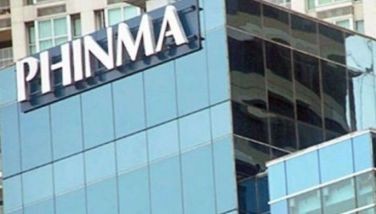Lowering of tariff on petrochem resins deferred anew
September 5, 2005 | 12:00am
For the second time, the signing of an executive order (EO) lowering the tariff rates on plastic and petrochemical resins has been postponed upon the petition of the affected Association of Petrochemical Manufacturers of the Philippines (APMP).
According to Trade and Industry Secretary Peter B. Favila, the Cabinet-level Tariff and Related Matters (CTRM) has agreed to review anew its decision to lower the Common Effective Preferential Tariff (CEPT) rates on plastic and petrochemical resins to five percent from the current rate of 10 percent.
Favila said that following a meeting with APMP members led by JG Summit Petrochemical Corp. (JGSPC), the current members of CTRM agreed to review the decision made by the previous members of the CTRM.
Favila, along with Finance Secretary Margarito Teves and Economic Planning Secretary Augusto Santos, have taken over as the new economic team and members of the CTRM vice Cesar Purisima, Juan B. Santos and Romulo Neri.
The previous CTRM had recommended to the NEDA Board to endorse to Malacañang for signing an EO on the CEPT rate reduction on plastic and petrochemical resins.
The new EO would supersede EO 161, issued by Malacañang in 2003, which suspended the implementation of the tariff reduction schedule for petrochemical products adopted by members of ASEAN under the ASEAN Free Trade Agreement (AFTA).
The new EO would lower the CEPT rates tariffs of at least nine petrochemical categories excluded from the AFTA scheme.
Petrochemical products whose tariffs would be reduced are polyethylene (PE) with a specific gravity of .94 percent or less and PE with a specific gravity of .94 percent or more.
Tariffs of polypropylene (PP) and PP with co-polymers would also be reduced to five percent.
The tariff of expansible polystyrene (PS) would also be lowered to five percent.
All other types of PS would also be subject to a lower five percent tariff.
Tariffs of polyvinyl chloride (PVC) which is not mixed with any other substances would also be reduced to five percent.
Plasticized and non-plasticized PVC would also be subject to a five percent tariff.
The tariff rate of the nine petrochemical categories should have been reduced to between zero to five percent in 2003.
However, these products were excluded following the petition of lone petrochemical manufacturer JG Summit Petrochemical Corporation (JGSPC) to exempt such products from the coverage of the new CEPT rates.
JGSPC, which would be producing some of the said petrochem products, wanted some tariff protection in order to give it time to become competitive.
EO 161 had also maintained the rates of finished products from seven to 10 percent, while other ASEAN members had already lowered their rates to five percent under the AFTA.
EO 161 was supposed to expire by January 2005.
The Association of Petrochemical Manufacturers of the Philippines (APMP) had sought an extension of the tariff cover until 2010 to make the local petrochemical products competitive with cheap imports.
According to Trade and Industry Secretary Peter B. Favila, the Cabinet-level Tariff and Related Matters (CTRM) has agreed to review anew its decision to lower the Common Effective Preferential Tariff (CEPT) rates on plastic and petrochemical resins to five percent from the current rate of 10 percent.
Favila said that following a meeting with APMP members led by JG Summit Petrochemical Corp. (JGSPC), the current members of CTRM agreed to review the decision made by the previous members of the CTRM.
Favila, along with Finance Secretary Margarito Teves and Economic Planning Secretary Augusto Santos, have taken over as the new economic team and members of the CTRM vice Cesar Purisima, Juan B. Santos and Romulo Neri.
The previous CTRM had recommended to the NEDA Board to endorse to Malacañang for signing an EO on the CEPT rate reduction on plastic and petrochemical resins.
The new EO would supersede EO 161, issued by Malacañang in 2003, which suspended the implementation of the tariff reduction schedule for petrochemical products adopted by members of ASEAN under the ASEAN Free Trade Agreement (AFTA).
The new EO would lower the CEPT rates tariffs of at least nine petrochemical categories excluded from the AFTA scheme.
Petrochemical products whose tariffs would be reduced are polyethylene (PE) with a specific gravity of .94 percent or less and PE with a specific gravity of .94 percent or more.
Tariffs of polypropylene (PP) and PP with co-polymers would also be reduced to five percent.
The tariff of expansible polystyrene (PS) would also be lowered to five percent.
All other types of PS would also be subject to a lower five percent tariff.
Tariffs of polyvinyl chloride (PVC) which is not mixed with any other substances would also be reduced to five percent.
Plasticized and non-plasticized PVC would also be subject to a five percent tariff.
The tariff rate of the nine petrochemical categories should have been reduced to between zero to five percent in 2003.
However, these products were excluded following the petition of lone petrochemical manufacturer JG Summit Petrochemical Corporation (JGSPC) to exempt such products from the coverage of the new CEPT rates.
JGSPC, which would be producing some of the said petrochem products, wanted some tariff protection in order to give it time to become competitive.
EO 161 had also maintained the rates of finished products from seven to 10 percent, while other ASEAN members had already lowered their rates to five percent under the AFTA.
EO 161 was supposed to expire by January 2005.
The Association of Petrochemical Manufacturers of the Philippines (APMP) had sought an extension of the tariff cover until 2010 to make the local petrochemical products competitive with cheap imports.
BrandSpace Articles
<
>
- Latest
- Trending
Trending
Latest
































